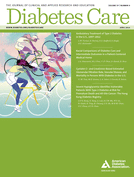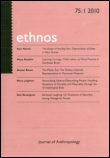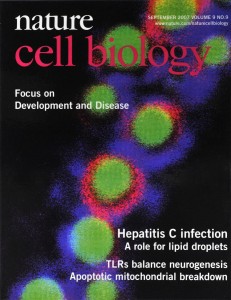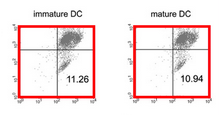 2014 was quite a year for Retraction Watch. We reported on hundreds of retractions — here are our top 10 — but we also took some big steps in our development. Some highlights: Continue reading Retraction Watch: A year in review, an accounting, and thanks
2014 was quite a year for Retraction Watch. We reported on hundreds of retractions — here are our top 10 — but we also took some big steps in our development. Some highlights: Continue reading Retraction Watch: A year in review, an accounting, and thanks
Month: December 2014
PubPeer Selections: “Too remarkable to believe;” a super-duplicate publication; what was acceptable in 2002?
Retractions follow revelations of misconduct by diabetes biotech
 Several months after a drug company cancelled development of a potential diabetes cure because it found evidence that a biotech they had recently acquired had committed misconduct in studies of the drug, two retractions of relevant studies have appeared.
Several months after a drug company cancelled development of a potential diabetes cure because it found evidence that a biotech they had recently acquired had committed misconduct in studies of the drug, two retractions of relevant studies have appeared.
The research involves DiaPep277, which, as Josh Levy explained here in September, “would cause the immune system to stop attacking beta cells,” the cells in the pancreas that produce insulin. But Hyperion Therapeutics, which had acquired DiaPep277 developer Andromeda Biotech in June, announced in September that it had
uncovered evidence that certain employees of Andromeda Biotech, Ltd., which Hyperion acquired in June 2014, engaged in serious misconduct, including collusion with a third-party biostatistics firm in Israel to improperly receive un-blinded DIA-AID 1 trial data and to use such data in order to manipulate the analyses to obtain a favorable result.
The retractions are both of papers published in Diabetes Care in May 2014. Here’s the notice for “Treatment of Recent-Onset Type 1 Diabetic Patients With DiaPep277: Results of a Double-Blind, Placebo-Controlled, Randomized Phase 3 Trial:” Continue reading Retractions follow revelations of misconduct by diabetes biotech
Second retraction appears for Mart Bax
 Retired Dutch anthropologist Mart Bax made a career out of making up papers, many of them on the Bosnian genocide.
Retired Dutch anthropologist Mart Bax made a career out of making up papers, many of them on the Bosnian genocide.
He retired from the Free University in Amsterdam in 2002. It wasn’t until 2013 that the university published a report indicating that Bax never published 61 of the papers he listed on his CV, and many of the real articles were based on fabricated data.
Publisher Taylor and Francis retracted one of Bax’s papers from Ethnic and Racial Studies in April. Now they’re retracting a second, from Ethnos, using almost identical language.
Here’s the notice: Continue reading Second retraction appears for Mart Bax
Stem cell study retraction produces useless notice
 We don’t have much to go on here, for a retraction from the International Journal of Stem Cells.
We don’t have much to go on here, for a retraction from the International Journal of Stem Cells.
Here’s what we do know: Dental researchers at several universities in Egypt, including Cairo University, Future University, and Misr University published a paper together. According to the article, they gave dogs oral ulcers and then injected the ulcers with either fat-derived stem cells, bone marrow stem cells, or saline. The researchers conclude that the fat stem cells, also known as adipose derived stem cells, helped the dogs heal.
Unfortunately, we have no idea what went wrong, because the retraction notice is useless. Here in its entirety is the notice for “Adipose Stem Cells as Alternatives for Bone Marrow Mesenchymal Stem Cells in Oral Ulcer Healing”: Continue reading Stem cell study retraction produces useless notice
Weekend reads: “Plagiarism is for losers;” the retraction war; a step back for science in 2014
 Welcome to our last Weekend Reads of 2014. This week featured our second annual Top 10 Retractions list. Here’s what was happening elsewhere: Continue reading Weekend reads: “Plagiarism is for losers;” the retraction war; a step back for science in 2014
Welcome to our last Weekend Reads of 2014. This week featured our second annual Top 10 Retractions list. Here’s what was happening elsewhere: Continue reading Weekend reads: “Plagiarism is for losers;” the retraction war; a step back for science in 2014
Nature Cell Biology insulin paper retracted over antibody problems
 A Nature Cell Biology article on insulin regulation has been retracted after scientists noted that the antibodies used in their research were not as specific as they had previously believed.
A Nature Cell Biology article on insulin regulation has been retracted after scientists noted that the antibodies used in their research were not as specific as they had previously believed.
The notice is clear on the problems with the science, which together “call into question the main conclusions of the paper.” Three of the paper’s five authors were employed at Novartis at the time of publication.
Here’s the notice for “Wolfram syndrome 1 and adenylyl cyclase 8 interact at the plasma membrane to regulate insulin production and secretion”: Continue reading Nature Cell Biology insulin paper retracted over antibody problems
“Incorrect data” kills apoptosis paper
 Frontiers in Pharmacology has retracted a paper on baicalin, an antioxidant sold in health food stores, because it had both “incorrect data and invalid statistical analyses.”
Frontiers in Pharmacology has retracted a paper on baicalin, an antioxidant sold in health food stores, because it had both “incorrect data and invalid statistical analyses.”
A comment on PubPeer notes that one of the figures (see image to the right) contains two similar-looking flow cytometry images labeled with different values, which could be what the retraction is hinting at.
Here’s the notice for “Baicalin induced dendritic cell apoptosis in vitro”: Continue reading “Incorrect data” kills apoptosis paper
Paper recommending calorie limits on Happy Meals retracted

A paper estimating the effects of limiting fast food meals with toys to under 550 calories has been retracted after concerns arose regarding the scientists’ use of an outdated model for estimating weight changes in kids.
The paper estimated that kids who eat fast food twice a week would avoid gaining two pounds a year if calorie limits are imposed on meals with toys. However, everyone we spoke to, and the notice, indicated that their estimate was inaccurate.
Here’s the notice for “Modeling Potential Effects of Reduced Calories in Kids’ Meals with Toy Giveaways”:
Continue reading Paper recommending calorie limits on Happy Meals retracted
The top 10 retractions of 2014
 As they did last year, our friends at The Scientist asked us to contribute our list of top 10 retractions in 2014. Here’s our list, from Anversa to Zaman. Continue reading The top 10 retractions of 2014
As they did last year, our friends at The Scientist asked us to contribute our list of top 10 retractions in 2014. Here’s our list, from Anversa to Zaman. Continue reading The top 10 retractions of 2014
